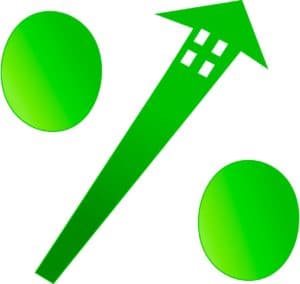We hope that you and your family are safe, healthy and secure during this COVID-19 pandemic.
Ira Smith Trustee & Receiver Inc. is absolutely operational and Ira, in addition to Brandon Smith, is readily available for a telephone consultation or video meeting.
Canadians with the lowest credit scores rating led a wave of pandemic credit card debt repayment
Statistics Canada reported on August 23, 2021, that Canadians with the lowest credit scores rating repaid the most credit card debt in the first year of the pandemic. Over the period of the pandemic to January 2021, the mortgage debt of Canadian households increased by a record amount of $99.6 billion, driven by rising home prices, especially for single-family houses. Over the same period, non-mortgage debt fell by a record $20.6 billion, mainly due to a $16.6 billion decline in credit card debt.
In this Brandon Blog, I look at the area of people with credit scores rating and discuss how and why these lowest credit scores rating Canadians were able to pay down their high-interest debt.
Credit scores rating: Credit report and score basics
Credit scores are three-digit numbers derived from your credit report. An individual’s credit report summarizes their Canadian credit history. The Canadian credit reporting bureaus are Equifax Canada and TransUnion Canada. These private companies are credit reporting agencies that collect, store, and share information about how you use credit. As your credit report changes over time, your credit score will change as well. The more responsibly you manage your credit, the more points you get. According to a review of Borrowell Canada members, even a single missed payment can lower credit scores by 150 points.
Your credit score calculation is based on information in your credit report. A credit score between 660 and 900 is generally considered good, very good, or excellent credit scores.
The credit score model has credit score ranges from 300 to 900 that is used to determine creditworthiness. People always ask if there is a “magic number” to obtain better loan rates. This is an age-old question. Different lenders may focus on different aspects of your credit history. So, I cannot give you one number that unlocks the door to the best loan rates.

Credit scores rating: How to check your credit report
Getting a credit card, getting a car loan, or applying for any loan will result in a credit file being opened up on you. The report keeps getting updated over time. Your borrowing history and borrowing experience are all taken into account.
The report contains information about every loan you have taken out in the last six years and whether you pay on time or not, how much you owe, what your credit limit is on each, as well as a list of creditors who are authorized to access your record.
You can get a free credit report on yourself yearly from each credit bureau. You need to submit your ID and background details to prove you are the person entitled to make the request. You can make sure that your credit history report is error-free. Any errors will be corrected by each credit bureau based on the evidence you provide.
A credit rating of R1 is the best. That means you pay within 30 days of receiving your bill, or “as agreed.”
Anyone who wants to grant you credit or provide you with a service that involves you receiving something before you pay for it (such as a rental apartment or phone service) can get a copy of your credit report so they can make a credit decision about you.
R9 is the lowest credit rating.
Average Canadian credit scores rating improved during the pandemic, Borrowell study finds
With Borrowell, a fintech company, you can get your credit score every week for free. From Q1 2020 to Q1 2021, they analyzed credit scores and credit reports of 1,015,369 Canadians, including those in 20 of Canada’s largest cities, to investigate changes in credit scores and missed payment trends across the country.
The Borrowell study came up with several very interesting findings:
- Government relief measures, lifestyle changes, and financial shifts have impacted credit scores and bill payments over the past year – sometimes revealing the divergence in how COVID-19 affected different segments of society’s financial future.
- In spite of the coronavirus pandemic, credit scores for Canadians actually improved.
- The average number of people with missed payments decreased from 3 out of every 10 consumers to 2 out of every 10 people between the first quarter of 2020 and the first quarter of 2021.
- From Q1 2020 to Q1 2021, Borrowell members’ average credit scores increased by 18 points, rising from 649 (under the average) in Q1 2020 to 667 (fair).
- The risk of missing paying bills on time is 432 times higher for consumers with low credit scores rating.
The Statistics Canada study: Canadians with the lowest credit scores rating led the wave of pandemic credit card debt repayment
The new StatsCan study, “Trends in household non-mortgage loans: The evolution of Canadian household debt before and during COVID-19“, examines how Canadians reduced non-mortgage debt and debt levels during the pandemic.
During the pandemic, households began to see their disposable income rise, partly due to the limited spending opportunities during lockdowns, as well as the government’s monetary assistance, such as CERB or enhanced Employment Insurance. This was an opportunity for many households to pay down their expensive non-mortgage debt, with unsecured credit lines and credit card balances being paid down at record levels.
Prior to the pandemic, the outstanding balance on credit cards was $90.6 billion in February 2020, compared with $74 billion just a year later. During the two decades prior to the pandemic, the outstanding balance carried on credit cards had increased on average by 20.7% per year.
Debt reductions were greatest among Canadians with the lowest credit ratings, suggesting that those most vulnerable to financial hardship used savings prudently during the pandemic. Home prices increased, especially for single-family houses, as I indicated at the outset, driving a record increase in mortgage debt for Canadian households of $99.6 billion.
For me, this is a mixed blessing. You may be pleased to hear that many Canadians with low credit scores have been able to save money and reduce their household debt. In my opinion, mortgage debt is highly unlikely to have been accumulated by the same people.
People with low credit scores were not the ones filling out mortgage applications. It was rather people with good and excellent credit who either moved up and/or refinanced in order to do renovations, improvements and/or to pay off debt with a high-interest rate. Furthermore, it shows that people with low credit scores can earn more money staying home and receiving government COVID-19 assistance than they could make at their normal job. That is a very sad comment.
Minimum credit scores rating for mortgages in Canada
You can either be approved or declined for a mortgage based on your credit score. It can affect your mortgage interest rate, the type of mortgage available, as well as the mortgage lenders that you can choose from.
A mortgage requires a minimum credit score of:
- in the case of major banks, 600;
- for B lenders, 550;
- private lenders have no minimum requirements; and
- for CMHC mortgage default insurance mortgages, 600 points are required.
For a mortgage with bad credit, your only options are B lenders and private lenders, and they may require a large down payment or equity in your home. A lower credit score is generally associated with a higher mortgage interest rate. Low mortgage rates require a credit score of at least 680.
Having a credit score above 600 is good for getting a mortgage in Canada, as it opens up more options. In most cases, CMHC mortgage default insurance is not available to people with credit scores below 600. When you have a low credit score, your mortgage loan application may be denied, your mortgage rate may be higher, or you may be limited in the amount of money you can borrow.
A credit scores rating must be 680+ to qualify for the low-interest rates advertised in the media. CMHC mortgage default insurance is another issue some borrowers need to be concerned about. As long as you have sufficient income and property value to service the mortgage, a low score may suffice, however, the private lender will charge you higher fees and interest rates.

Credit scores rating summary
I hope that you found this credit scores rating Brandon Blog. Credit scores do not always properly reflect people who have problems because they are cash-starved and in debt. There are several insolvency processes available to a person or company with too much debt. You may not need to file for bankruptcy.
If you are concerned because you or your business are dealing with substantial debt challenges, you need debt help and you assume bankruptcy is your only option, call me.
It is not your fault that you remain in this way. You have actually been only shown the old ways to try to deal with financial issues. These old ways do not work anymore.
The Ira Smith Team utilizes new modern-day ways to get you out of your debt difficulties with debt relief options as an alternative to bankruptcy. We can get you the relief you need and so deserve. Our professional advice will create for you a personalized debt-free plan for you or your company during our no-cost initial consultation.
The tension put upon you is big. We know your discomfort factors. We will check out your entire situation and design a new approach that is as unique as you and your problems; financial and emotional. We will take the weight off of your shoulders and blow away the dark cloud hanging over you. We will design a debt settlement strategy for you. We know that we can help you now.
We understand that people with credit cards maxed out and businesses facing financial issues need a realistic lifeline. There is no “one solution fits all” method with the Ira Smith Team. Not everyone has to file bankruptcy in Canada. The majority of our clients never do as we know the alternatives to bankruptcy. We help many people and companies stay clear of filing an assignment in bankruptcy.
That is why we can establish a new restructuring procedure for paying down debt that will be built just for you. It will be as one-of-a-kind as the economic issues and discomfort you are encountering. If any one of these seems familiar to you and you are serious about getting the solution you need to become debt-free, contact the Ira Smith Trustee & Receiver Inc. group today.
Call us now for a no-cost consultation.
We hope that you and your family are safe, healthy and secure during this COVID-19 pandemic.
Ira Smith Trustee & Receiver Inc. is absolutely operational and Ira, in addition to Brandon Smith, is readily available for a telephone consultation or video meeting.




 Borrowing in retirement: Introduction
Borrowing in retirement: Introduction
